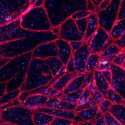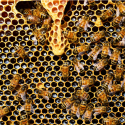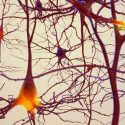Pradeu T, Daignan-Fornier B, Ewald A, Germain PL, Okasha S, Plutynski A, Benzekry S, Bertolaso M, Bissell M, Brown JS, Chin-Yee B, Chin-Yee I, Clevers H, Cognet L, Darrason M, Farge E, Feunteun J, Galon J, Giroux E, Green S, Gross F, Jaulin F, Knight R, Laconi E, Larmonier N, Maley C, Mantovani A, Moreau V, Nassoy P, Rondeau E, Santamaria D, Sawai CM, Seluanov A, Sepich-Poore GD, Sisirak V, Solary E, Yvonnet S, Laplane L. (2023), Reuniting Philosophy and Science to Advance Cancer Research. Biological Reviews. (Open Access).
Category Archives: Non classé
Postdoc position @UBordeaux: Philosophy of Cancer & Aging
A new position opens in philosophy of cancer at ImmunoConcept
Candidate will investigate evolution and phylogenetics of photoprotection in relation to skin cancer and photoaging.
The position starts in September 2022 for 12 months.
Main goal is to co-write a conceptual piece on that question.
Strong interdisciplinary and international context
The postdoc will joint the Conceptual Biology and Medicine team at ImmunoConcept and work in collaboration with several other cancer research units on the Campus.
The postdoc will also enjoy numerous interactions with top scientists and philosophers visiting the lab and participate in international activities.
Contact Maël Lemoine for further information
New BJPS post by Elliott Sober on Infectious Diseases
Infectious Diseases
and the Evolution of Virulence
Elliott Sober
BJPS, Auxiliary Hypotheses
http://www.thebsps.org/auxhyp/evolution-of-virulence-sober/
Three positions in the Conceptual Biology and Medicine Group at University of Bordeaux (June 2020)
Two PhD positions and one Postdoc position are open at the University of Bordeaux.
They are open to philosophers of biology or medicine and to biologists alike.
Both the PhD positions and the postdoc position are 3 year-long.
The research of the PhD students and the postdoc will be on cancer. The method will necessarily be immersive: integrated into the ImmunoConcEpT lab, the candidate will work in close collaboration with scientists from this laboratory or, depending on the choice of theme, from another partner laboratory specialized in cancer. The candidate must be able to immediately become involved in international research in the philosophy of science and take his/her place within the PhilInBioMed network.
The laureates will join the Conceptual Biology and Medicine Group, a group of philosophers embedded in a scientific lab, and the PhilInBioMed network a dynamic international network of philosophers of biology and medicine interested in practicing philosophy in a scientific environment. The working language is English and a strong interest in international collaboration is required.
The deadline for application is July 15th, 2020. The results will be known by July 25th at the latest.
To apply, material should be sent to: Maël Lemoine and Thomas Pradeu.
Candidates should send their CV and a description of the project they would like to develop in this environment (between 5 and 10 pages). Candidates should also ask 2 people they have worked with to send a letter of recommendation directly to the email addresses above.
It is highly recommanded that applicants contact us before sending their application.
PhD in Philosophy of medicine
Philosophy of medicine is now a traditional part of philosophy of science. In this domain, several authors have proposed detailed analyses of the specific case of cancer to illustrate a more general point in philosophy of medicine, for instance, the nature of classifications in medicine, the difference between function and dysfunction, the existence of theories in medicine. In contrast, few authors have so far investigated the specificity of cancer itself: for instance, the specific difficulties of the demarcation between healthy and cancerous tissue in early detection and screening; the major conceptions of the therapeutic approach to cancer, from surgery to immunotherapies; the impact on the conception of clinical trials in oncology of stratification by biomarkers of therapeutic response in personalized medicine; the strong links between models of cancer pathophysiology and implicit models of an effective therapeutic intervention. This PhD project will study the specific characteristics of cancer, from the point of view of philosophy of medicine.
PhD in Philosophy of biology
Philosophy of Biology is a classic domain of philosophy of science. Its main topics are diverse, with a majority of work focusing on evolutionary theory. Conceptual and philosophical approaches to cancer constitute an emerging trend in philosophy of biology, especially since the recent publication of several monographs. Yet, these monographs have illustrated major questions of philosophy of biology, such as the nature of multi-level explanations, reductionism, or the nature of genetic causality, rather than exploring specifically the nature of cancer as a biological phenomenon.
Among the issues that have barely been explored hitherto in philosophy of biology and could be explored by a PhD student in our lab, the following can be mentioned:
i) When and in which organisms cancer appeared in evolution?
ii) In which species "cancers" exist today?
iii) How is cancer related to multicellularity?
iv) Is cancer a decohesion of the biological individual, and if so how should this "decohesion" be understood?
v) What is the role of the immune system in the development and dissemination of cancer? Does the appearance of cancer reflect a dysfunction of immune surveillance?
More generally, any proposal of a PhD topic focusing on cancer and using the methodology of philosophy of biology and/or conceptual, theoretical and methodological approaches to the life sciences will be considered.
Postdoctoral researcher in Philosophy of biology and/or Philosophy of medicine
Philosophy of biology is a classical field of philosophy of science, and philosophy of medicine, a more recent and related field. Both have recently turned their attention to cancer, with varied contributions on topics such as: the nature of multi-level explanations, reductionism, the nature of genetic causality, the nature of classifications in medicine, the difference between function and dysfunction, the existence or not of theories in medicine. Based on his or her experience and previous work, the candidate will be interested in a major theme in the philosophy of cancer, either in the philosophy of biology or in the philosophy of medicine. Examples of such themes are the emergence of cancer during evolution, its extent in the reign of the living, its links with the most fundamental properties of a multicellular organism, the nature of its development, its relationship with the immune system, the exact nature of the "decohesion" that it operates within a living being, or the demarcation between healthy and cancerous tissue in early detection, the major conceptions of therapeutic management of cancer, from surgery to immunotherapy, the impact on the design of clinical trials in oncology of biomarker stratification of therapeutic response in "personalized medicine".
Recent publications of our group on the topic
– Rondeau E., Larmonier N., Pradeu T. and Bikfalvi A. [co-senior authors] (2019) Philosophy of biology: Characterizing causality in cancer eLIFE 8:e53755.
– Pradeu T. (2019), Philosophy of Immunology. Cambridge University Press, Elements in Philosophy of Biology Series (Open Access).
– Laplane L., Duluc D., Bikfalvi A, Larmonier N., and Pradeu T. (2019), Beyond the tumour microenvironment. International Journal of Cancer 145(10), 2611-2618.
– Lemoine M, ' Molecular complexity: Why has psychiatry not been revolutionized by genomics (yet)? ', in G. Boniolo & M. Nathan (ed), Foundational Issues in Molecular Medicine, Routledge, London, 2016, pp. 81-99.
-Lemoine M, Introduction à la philosophie des sciences médicales, Hermann, Paris, avril 2017. Deuxième édition : automne 2017.
-Lemoine M, ' Animal Extrapolation in Preclinical Studies. An analysis of the tragic case of TGN1412 ', Studies in the History and Philosophy of Biological and Biomedical Science, 61 (2017), p. 35-45.
-Lemoine M, 'Neither from words, nor from visions: understanding p-medicine from innovative treatments', Lato Sensu (en ligne).
– Pradeu T. (2019), Philosophy of Biology: Immunology and individuality, eLIFE 8:e47384.
– Laplane L., Mantovani P., Adolphs R., Chang H., Mantovani A., McFall-Ngai M., Rovelli C., Sober E., and Pradeu T. (2019), Why science needs philosophy. Proceedings of the National Academy of the Sciences USA (PNAS) 116 (10) 3948-3952.
– Laplane L., Duluc D., Larmonier N., Pradeu T. & Bikfalvi A. [co-senior authors] (2018), The Multiple Layers of the Tumor Environment. Trends in Cancer 4(12), 802-809.
‘What is an Individual Organism? Philosophical Problems’ Conference in Krakow
Understanding the origins and nature of biological individual constitute important problems in the biological sciences. For instance, what separates a genuine biological individual from an aggregate of lower units, or from a population of interacting lower entities? Answering these questions could permit us to understand better the status of ant colonies or honey bees, for it is not clear where do they belong. Furthermore, in recent years multispecies ensembles made of host and their symbiotic microorganisms (‘holobionts’), has been called the real unit upon which natural selection act, which has led to a debate involving both biologists and philosophers of biology. The aim of this conference is to explore the philosophical issues that have been raised over the concept of biological individuality. We welcome any submissions that touch those problems, including attempts to answer the following questions:
What makes a group of objects an individual?
Is there one proper way of individualization?
Can we have more than one concept of biological individuality?
What is the role of biological practice in those debates?
How biological individuals evolve?
Keynote speakers:
Dominika Włoch-Salamon (Jagiellonian University) is a biologist interested in social behaviour of microorganisms, experimental evolution and programmed cell death.
Learn more about Dominika: http://www.eko.uj.edu.pl/en_GB/zespol-genetyki-ewolucyjnej/badania
Pierrick Bourrat (Macquarie University and the University of Sydney) is a philosopher of biology interested in evolutionary theory, and evolutionary individuality.
Learn more abour Pierrick: http://pierrickbourrat.com/
General Information
Organizers
Institute of Philosophy, Jagiellonian University
Coordinator: Adrian Stencel
Who can apply?
Philosophers, biologists, medical doctors, and any other scholars, at any point in their career, who are interested in this subject.
Language
English is the conference language.
Where and when will the conference be held?
In Kraków, 11 October 2019.
How to apply?
Send an abstract (maximum 500 words) before 25 August 2019 to: philbio.workshops@gmail.com
All decisions will be made prior to 5 September 2019.
Launch of a new interdisciplinary seminar in philosophy of neuroscience at the IHPST in Paris
Daniel Kostic (IHPST) and Denis Forest (Paris 1 Panthéon-Sorbonne & IHPST) are pleased to announce the launch of a new interdisciplinary seminar in philosophy of neuroscience at the IHPST in Paris. The description of the seminar (both in English and in French) and a schedule can be found on this link: https://www.sites.google.com/site/danielkostic/topexseminars
The inaugural talk will be given by Jean Daunizeau (Institut du Cerveau et de la Moelle épinière, Paris) on Monday 02 October 2017 at 5 PM at the IHPST, Salle de Conférence (2nd Floor, 13 rue du Four, 75006, Paris). The title of his talk is: “Dynamic causal modelling of brain-behavior relationships”.
Abstract:
“In this work, we expose a mathematical treatment of brain-behaviour relationships, which we coin behavioural Dynamic Causal Modelling or bDCM. This approach aims at decomposing the brain’s transformation of stimuli into behavioural outcomes, in terms of the relative contribution of brain regions and their connections. In brief, bDCM places the brain at the interplay between stimulus and behaviour: behavioural outcomes arise from coordinated activity in (hidden) neural networks, whose dynamics are driven by experimental inputs. Estimating neural parameters that control network connectivity and plasticity effectively performs a neurobiologically-constrained approximation to the brain’s input-outcome transform. In other words, neuroimaging data essentially serves to enforce the biological realism of bDCM’s decomposition of input-output relationships. In addition, post-hoc artificial lesions analyses allow us to predict induced behavioural deficits and quantify the importance of network features for funnelling input-output relationships. This is important, because this enables one to bridge the gap with neuropsychological studies of brain-damaged patients. We demonstrate the face validity of the approach using Monte-Carlo simulations, and its predictive validity using empirical fMRI/behavioural data from an inhibitory control task. Lastly, we discuss promising applications of this work, including the assessment of functional degeneracy (in the healthy brain) and the prediction of functional recovery after lesions (in neurological patients).”




